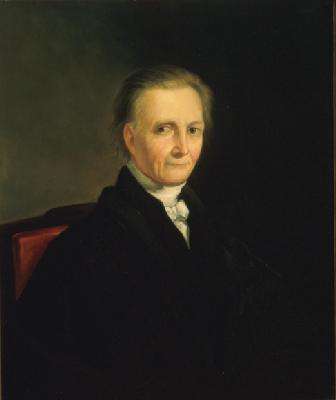The Volokh Conspiracy
Mostly law professors | Sometimes contrarian | Often libertarian | Always independent
Today in Supreme Court History: November 26, 1829
11/26/1829: Justice Bushrod Washington dies. He was President George Washington's nephew.

Editor's Note: We invite comments and request that they be civil and on-topic. We do not moderate or assume any responsibility for comments, which are owned by the readers who post them. Comments do not represent the views of Reason.com or Reason Foundation. We reserve the right to delete any comment for any reason at any time. Comments may only be edited within 5 minutes of posting. Report abuses.
Please to post comments


Keyes v. United States, 109 U.S. 336 (decided November 26, 1883): lieutenant's suit for back pay dismissed because he was validly court-martialed (one of the judges, his C.O., was a main witness, but he didn't object at that time) and because President's appointment of his successor terminated his commission (a much smaller Army in those days!)
Nitro-Lift Technologies v. Howard, 568 U.S. 17 (decided November 26, 2012): objection to non-compete agreements involved federal law (Federal Arbitration Act) but was matter for arbitrator in first instance (Oklahoma Supreme Court had purported to rest its decision on Oklahoma law as to enforceability of such agreements)
Palmer v. BRG of Georgia, 498 U.S. 46 (decided November 26, 1990): Do bar review companies form a cartel in violation of the Sherman Act? The Court here says: Yes! At my law school they seemed to be in competition but that might be illusory. (Full disclosure: I was a BarBRI rep, but it was because I was sleeping with the previous year's rep.) Here, former law student sued after companies agreed that one of them would not compete in that state (Georgia). The Court relied on United States v. Socony-Vacuum Oil Co., 1940, where oil companies agreed to temporary buys to keep oil prices up (that case was more famous for Douglas's footnote 59 which said price fixing was per se illegal regardless of means to do so or existence of overt act)
Under modern rules of criminal procedure no objection is required to obtain appellate review if a judge acts as a witness. Or at least some rules say as much. I do not know if all the modern rules do, or if court martial rules differ.
Thanks.
The C.O. was also the prosecutor, though how that came to be, and what the charges were, is not stated.
Possibly the Lt. (who was represented by counsel) deliberately accepted the situation so as to look like an innocent man with nothing to fear, a play for acquittal.
I believe your summary of the Keyes case is not completely accurate. The case was only about back pay, on appeal from the Court of Claims. The Court explicitly “express[ed] no opinion on the propriety of the proceedings of the court-martial”. He should have challenged those either on direct appeal or by a petition for writ of habeas corpus.
Committed as I am to finding at least three cases for every day of the year, I try to point out interesting details where they exist, because a lot of these cases substance-wise are unavoidably dull.
Yes, the Court expressed no opinion on the propriety of the trial. It cited a rule (which might not exist any more?) that one cannot collaterally attack a court martial verdict.
"Where a court-martial has cognizance of the charges made and has jurisdiction of the person of the accused, its sentence is valid when questioned collaterally although irregularities or errors are alleged to have occurred in its proceedings in that the prosecutor was a member of the court and a witness on the trial." Id. at 336.
You might be right about the direct appeal/habeas route. We don't know if he deliberately didn't do that for some reason, or maybe couldn't. As John F. Carr pointed out, military justice has special rules.
Yes, I think you have stated it perfectly well. Just a quick reading of some relevant materials seems to suggest that a direct appeal would not have been available, as it would be today, and the habeas jurisdiction would have been very limited, perhaps limited to a case where the court-martial lacked any personal jurisdiction over the defendant (which was not disputed here). (I believe the only sentence imposed by this court-martial had been discharge from the service.)
Modern practice strongly discourages collateral attacks on criminal judgments except in habeas-type proceedings meant solely for that purpose.
Probably only Surpreme who has a Liberian Island named after him...
That is interesting. I am fairly certain that this would be the first full-length biography of Bushrod Washington. He was certainly worthy of one before 2022, but it just goes to show how much he was in the giant shadows of George Washington and John Marshall.
I really liked his book The Tragedy of William Jennings Bryan. Looking forward to reading this one.